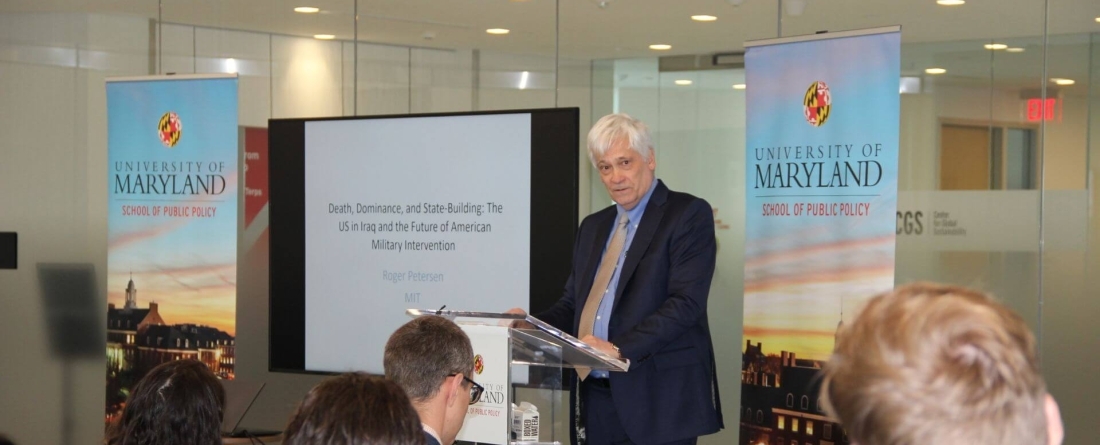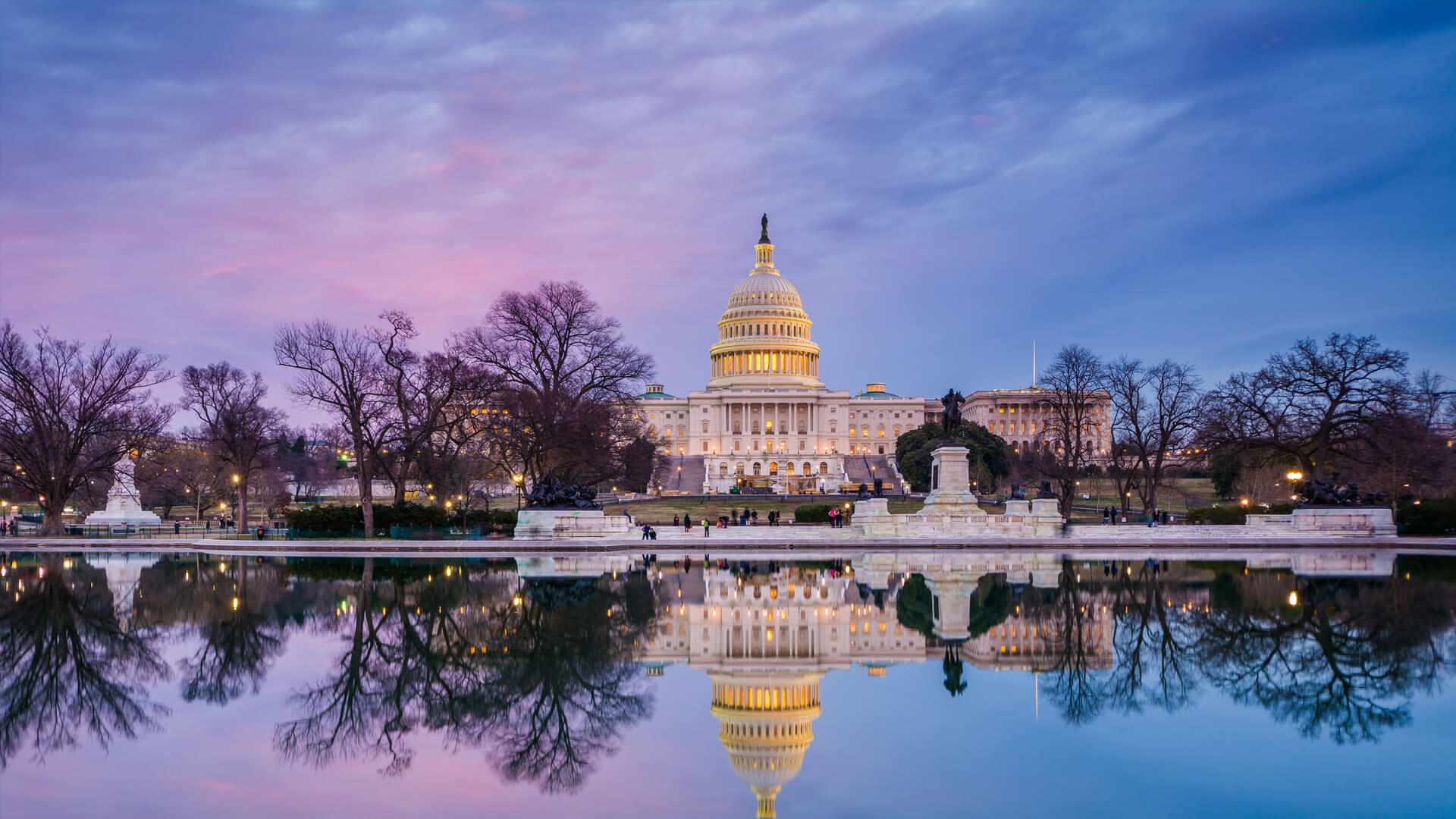
On Tuesday, the Norman and Florence Brody Family Foundation Public Policy Forum featured a comprehensive and analytical discussion with MIT Professor Roger Petersen on post-invasion Iraq and the strategic interplay among the U.S. military forces and Shia and Sunni insurgent organizations.
Brody Professor Betty Duke delivered the opening remarks then turned the program over to Professor Alec Worsnop, whose research explores sub-state conflict with a focus on the internal dynamics of non-state armed actors. Worsnop introduced Petersen as a “distinguished scholar in civil war” and someone who is “incredibly clear at presenting complex thoughts.”
Petersen's talk centered around his new book, "Death, Dominance, and State-Building" which explores the complexities of the wars in Iraq and Afghanistan. Contrary to initial perceptions of a singular conflict, Petersen uncovered a highly decentralized scenario with multiple distinct wars unfolding simultaneously. He emphasized the interplay among various factions, including Shiites, Sunnis and Kurds, and their roles in shaping the course of these conflicts. “As a political scientist, I'm interested in explaining variation in important outcomes,” explained Petersen. “And the two outcomes that I try to explain in this book are violence and state-building.”
Petersen analyzed the counterinsurgency strategies employed by the United States, ranging from the "awakening" strategy in Ramadi to the targeted decapitation tactics of Joint Special Operations Command (JSOC). He examined the evolution of these strategies and their implications for state-building efforts in Iraq.
Petersen explored the rise of political militias with religious affiliations, such as Kataib Hezbollah, within the Popular Mobilization Forces (PMF). Despite being designated as a terrorist organization by the U.S., Kataib Hezbollah wields significant influence and legitimacy within Iraq's state structures, further complicating the political and security landscape.
The discussion highlighted the fragmented nature of Iraq's political and military dynamics, with various armed groups competing for power and control. “Iraq is a weak state because its component actors like a weak state,” said Petersen. “But while there's a measure of stability, this system is highly inefficient and lacks transparency.” While the Shiite-dominated government maintains a semblance of stability, challenges persist due to the lack of centralized authority and the proliferation of armed factions.
Looking ahead, Petersen emphasized the importance of learning from past mistakes and understanding the underlying drivers of conflict in Iraq. Collaboration and nuanced analysis, he argued, are essential for navigating the complex realities of the region and formulating effective military strategies in future interventions. The forum offered a deeper insight into Iraq's intricate geopolitical landscape and the implications for future U.S. military engagements.



